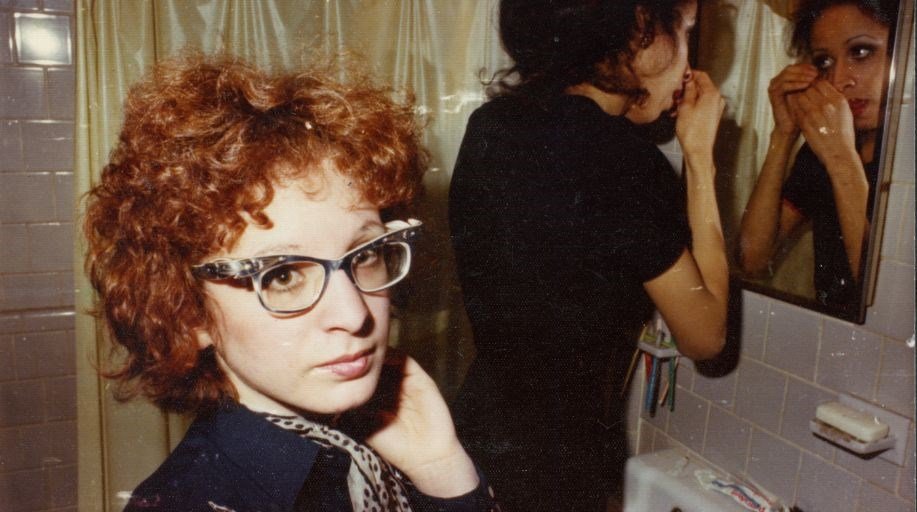The Opioid Crisis and the Art World; Nan Goldin's All the Beauty and the Bloodshed
“Sacklers lie, people die”, shout the members of PAIN, their voices echoing through the Sackler Wing of New York’s Metropolitan Museum of Art. The organisation, whose name stands for Prescription Addiction Intervention Now, was founded by photographer Nan Goldin after her own addiction to OxyContin, which culminated in a near-fatal fentanyl overdose. Their protests are designed to pressure the world’s most respected galleries and museums to sever their ties with the Sackler family, who have made their fortune selling and marketing opioids. All the Beauty and the Bloodshed offers a profound insight into the fight for justice led by those directly affected by the crisis, as well as telling the fascinating story of Nan Goldin’s life, full of moving reflections on art, healthcare, addiction, and the vital importance of activism.
Though art and pharmaceuticals may seem worlds apart, the infamous Sackler family are highly influential figures in both fields. They were renowned for their philanthropy, and until very recently owned wings in museums and galleries around the world, including the British Museum, the Louvre, and the Guggenheim. They also owned Purdue Pharma, the company which marketed OxyContin to doctors and patients as a non-addictive painkiller, kickstarting hundreds of thousands of addictions, many of which lead to stronger opioid use (often heroin or fentanyl). To date, OxyContin has caused 600,000+ deaths. Though Purdue have previously pleaded guilty to criminal charges for their instrumental role in the opioid epidemic, the family behind it have yet to be proportionally punished legally or financially. PAIN intends to hold the Sacklers accountable by targeting the institutions they work with, whilst also focusing on harm reduction for addicts, by increasing access to testing sites and the overdose-countering drug Narcan.
All the Beauty and the Bloodshed follows the remarkable life of Nan Goldin, from her troubled youth in suburban Boston to her role in the Downtown New York City counterculture. Her relationship with her parents was fraught, and the suicide of her older sister caused enormous grief throughout her life. After moving to downtown Boston at 18, she found acceptance in the city’s gay and transgender community; many of them acting as her early subjects. Her most well-known body of work is The Ballad of Sexual Dependency, which depicts life in 70s and 80s New York, with a focus on the heroin subcultures, art and music scene, and events from her own life.
Goldin tells of her experiences with sex work, addiction, loss, and domestic violence with a tone of transparency and honesty throughout. It is clear her activism comes from a place of deep empathy, particularly for those on the outskirts of society who are so often disregarded by mainstream institutions such as the pharmaceutical industry. The queer community she loved so dearly was decimated during the AIDS epidemic, with her close friends, such as actress Cookie Mueller and artist David Wojnarowicz, passing away. ACT UP, the political group protesting for action to fight AIDS, used tactics such as die-ins to confront institutions such as the FDA head-on. Their methods inspired PAIN and have proved largely successful decades later. The parallels are striking; when the government and pharmaceutical companies care so little about the wellbeing of marginalised groups, it is the community itself who steps up to fight.
This sense of community and solidarity gives the film an overwhelming message of hope and optimism – a testament to the power of activism and determination. Though the opioid crisis is still ongoing, and the Sackler family yet to pay legally or economically for the immense suffering they have caused, the erasure of their name from the art world is a huge triumph. All the Beauty and the Bloodshed shows the life-changing impact art has had on Goldin as well as so many others, and, though naïve to think the art world is immune to economic influences, it feels just that a name synonymous with profit-driven greed be removed from the spaces designed to educate and inspire.

